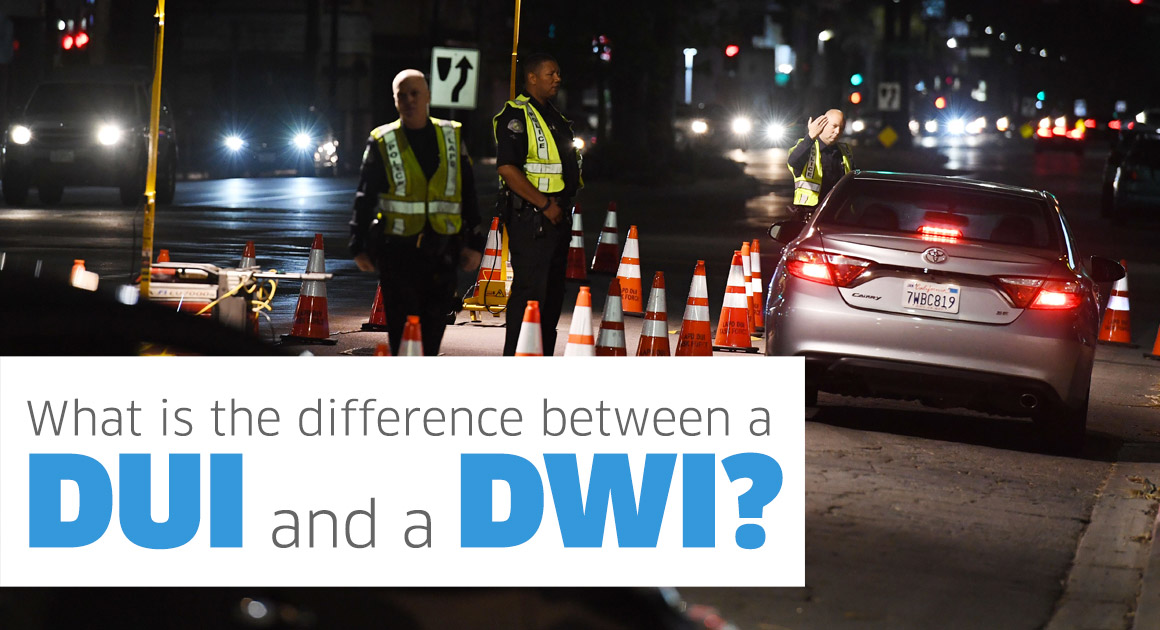The reporting of car accidents or arrests relating to a DUI or DWI are fairly regular in today’s news stories. Do you find yourself asking what is the difference between a DUI and a DWI? The answer to that depends on the state you reside in.
First, it is important to define BAC or a person’s blood alcohol concentration. It is against the law to operate or attempt to operate a motor vehicle with a blood alcohol level of .08 g/ml. If operating a commercial vehicle, the legal BAC is .04 g/ml and is .02 g/ml for drivers under 21 years old. A person’s BAC level is influenced by gender, weight, number of drinks and type of alcohol consumed. The best option if you have been drinking is to have a designated driver.
DUI vs DWI: Generally speaking, there is not a difference between a DUI (driving under the influence) and a DWI (driving while impaired) in most states.
Missouri:
- The chosen term is DWI and indicates an impaired driver with a BAC of .08 g/ml or .02 g/ml for drivers under 21 years of age. Missouri laws identify drivers impaired by other substances (i.e. illegal drugs or prescription drugs) operating or attempting to operate a motor vehicle as a DUID (driving under the influence of drugs). The penalties for a DUID are the same as they are for a DWI.
Alcohol- and Drug-Related Convictions
Statutory References: 302.060, 302.302, 577.010, and 577.012, RSMo
Points are added to a person’s Missouri driver record for an intoxication-related traffic conviction.
First Convictions
- First conviction for excessive blood alcohol content (BAC)
- First conviction for driving while intoxicated by alcohol or drugs (DWI)
A first-time DWI or BAC conviction results in a 90-day suspension. You may be eligible for a Restricted Driving Privilege (RDP).
Multiple Convictions
If you are convicted of a second intoxication-related traffic offense, regardless of the length of time between convictions, you will normally receive a 1-year revocation for accumulation of points.
If you are convicted a second time for an alcohol- or drug-related offense within a five-year period, you may also receive a 5-year license denial.
If you are convicted three or more times of an intoxication-related traffic offense, you will receive a 10-year license denial.
Source: https://dor.mo.gov/drivers/dwiinfo.php
Kansas
- The preferred term is DUI and indicates an impaired driver with a BAC of .08 g/ml or .02 g/ml for drivers under 21 years of age. A DUI also indicates drivers under the influence of drugs, combination of drugs, or a combination of alcohol and drugs that renders them incapable of safely operating a vehicle.
Kansas DUI penalties are based on prior convictions.
| 1st Offense | 2nd Offense | 3rd Offense | |
| Jail | 48 hours to six months | 5 days to 12 months | 90 days to 1 year |
| Fines | Up to $1,000 | Up to $1,750 | Up to $2,500 |
| License Suspension | 30 days (1 year with BAC of .15 g/ml or more) | 1 year | 1 year |
| Ignition Interlock Device (IID) | 180 days (1 year with BAC of .15 g/ml or more) | 1 year (2 years with BAC of .15 g/ml or more) | 2 years (3 years with BAC of .15 g/ml or more) |
Table Source: as cited by https://dui.drivinglaws.org/kansas.php.
Source: Kan. Stat. Ann. §§ 8–1015, 8–1567.
The difference between a DUI and a DWI is minimal, but the consequences and penalties are the same. If you have been drinking or are impaired, it’s not worth the risk, don’t drive. If you have been charged with a DUI or DWI in Kansas or Missouri and need legal representation, contact the Law Offices of Reginald Keith Davis.
The information provided above should not be considered legal advice.

